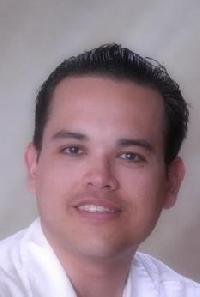Article: Should US doctors be required to provide interpreters for non-English-speaking patients? Thread poster: Dyran Altenburg (X)
|
|---|
Dyran Altenburg (X) 
United States
Local time: 10:16
English to Spanish
+ ...
washingtonpost.com
Limited English Can Hurt Patients
By Deborah Kong
AP Minority Issues Writer
In his halting English, Elvia Marin\'s husband struggled to tell the nurses and doctor that the pain
in his wife\'s stomach and back was so intense, it was worse for her than giving birth.
But the words that would have helped pinpoint her ailment - urinary tract stones - eluded him and
doctors in the Oakland, Calif., emer... See more washingtonpost.com
Limited English Can Hurt Patients
By Deborah Kong
AP Minority Issues Writer
In his halting English, Elvia Marin\'s husband struggled to tell the nurses and doctor that the pain
in his wife\'s stomach and back was so intense, it was worse for her than giving birth.
But the words that would have helped pinpoint her ailment - urinary tract stones - eluded him and
doctors in the Oakland, Calif., emergency room couldn\'t identify the problem by her discomfort alone.
A few hours later, the pain subsided and she left without treatment.
Others who don\'t speak English relate similarly disheartening tales of failing to receive medical
help. It\'s a tough problem hospitals and doctors are trying to solve as immigrants with limited
English increasingly flow into their hospitals and offices.
\"I felt really desperate and also frustrated at my inability to communicate in English and explain
my own problem,\" said Marin, a Mexican immigrant. \"I feel like we\'re not being listened to, not being
paid attention to. We\'re not considered important.\"
Doctors say they want to help patients, but object to interpreter costs that can range from $30 to
$400, according to the American Medical Association.
Others, like the Arlington, Va.-based advocacy group ProEnglish, say requiring doctors to provide
interpreters is \"a good example of multicultural ideology gone berserk.\" Newcomers should assimilate
by learning English, the group says.
About 21.3 million speak English \"less than very well,\" according to 2000 census data, compared with
13.9 million people in 1990.
Without adequate translation, health care for patients who speak limited English is at best
inconvenient, and at worst life-threatening, advocates say.
According to The Access Project, a community resource center at Brandeis University, a survey of
more than 4,000 uninsured patients found 8 percent needed an interpreter but did not get one. Of that
group, more than a quarter said they did not understand instructions for taking prescribed
medications, the survey found.
\"The health care delivery system has been a little slow to appreciate the growing diversity of our
nation,\" said Mark Rukavina, the project\'s executive director. \"Over and over again, community
systems are being strained by the changing demographics.\"
Without an interpreter to tell her what was going on, one Hmong woman thought she was being
kidnapped when she was driven 100 miles from a clinic in Fresno, Calif., to one in Modesto.
Xe Chue told her sister Pang Thao, \"they kept driving, driving away. As they went further away, she
got more afraid,\" Thao said. \"She thought they were going to take her to some bad places and just do
whatever they wanted to her.\"
When she arrived, Chue motioned to two security guards she wanted to phone her family, but they
ignored her, Thao said.
\"You\'re supposed to trust doctors and nurses with your life,\" Thao said.
Federal civil rights law requires hospitals and doctors receiving federal funds to provide services
that can be understood by non-English speakers. In general, doctors cannot turn away patients simply
because they don\'t speak English.
An executive order signed by President Clinton emphasized that programs provided in English that are
not accessible to those who speak limited English are discriminatory.
This fall, the Department of Health and Human Services\' Office for Civil Rights plans to issue
guidelines for serving such patients.
But four doctors and ProEnglish have filed a lawsuit seeking to block the executive order. \"There is
such a compelling reason for maintaining a common language,\" said ProEnglish\'s executive director
K.C. McAlpin. \"This is going to lead to disaster in this country - balkanization, linguistic
segregation.\"
In California, advocates are pushing for a bill to require stricter enforcement of a 1973 law that
makes state and local agencies provide bilingual services if they serve a substantial number of
non-English-speaking people.
And a new Maryland law says state agencies must translate vital documents if 3 percent of the
population they serve is unable to understand or speak English.
Doctors \"want to get the patient the medical care they need as efficiently and as quickly as they
need it,\" said AMA president Dr. Richard Corlin. \"We don\'t want to have to turn them away because of
some technical problem related to the fact they can\'t speak English.\"
But the AMA opposes requiring doctors to provide interpreters. The cost can far exceed the typical
$30 to $50 doctors receive for treating a Medicaid patient, the AMA said in a letter to federal
health officials.
Doctors rely on a patchwork of methods for communicating with patients who don\'t speak English. Some
enlist janitors, receptionists, other patients or relatives. At Montgomery General Hospital in Olney,
Md., staff members occasionally use flash cards for women giving birth with phrases in Asian dialects
for \"pain,\" \"pressure\" and \"push.\"
A more sophisticated pilot project at Gouverneur Hospital in New York uses trained medical
interpreters for simultaneous interpretation of Spanish, Mandarin, Cantonese and Fukinese, a Chinese
dialect. Doctors and patients wear headsets and the conversation is transmitted over a wireless
network to an interpreter in another room.
In April, the Wake Forest University School of Medicine became the first to require students to
learn Spanish under a new curriculum suggested by students.
\"When you can even speak some Spanish, you can really connect better with the patient,\" said recent
graduate Sarah Cartwright. ▲ Collapse
| | | | | In Australia - everyday practice | Jun 30, 2002 |
I haven\'t had the clue that in the country that claims to be multicultural, multilingual, multi-what-ever the NESB person is not provided with the appropriate language support specially when the health is concerned.
In Australia it is everyday practice for a physicians to call in the interpreter for a NESB patient.
I have specialised health/medical interpreting and as a free-lancer (and the top professional - my language pairs - in the field in Western Australia) I have rea... See more I haven\'t had the clue that in the country that claims to be multicultural, multilingual, multi-what-ever the NESB person is not provided with the appropriate language support specially when the health is concerned.
In Australia it is everyday practice for a physicians to call in the interpreter for a NESB patient.
I have specialised health/medical interpreting and as a free-lancer (and the top professional - my language pairs - in the field in Western Australia) I have reasonable income from interpreting for medical practitioners and NESB patients only.
And this service is greatly subsidized by the Government - the Government that acknowledges multiculturalism, multilingualism of Australian society. ▲ Collapse
| | | | Stephen Franke
United States
Local time: 07:16
English to Arabic
+ ...
| | It's complicated issue... | Jul 7, 2002 |
Quote:
On 2002-06-30 12:33, kemmus wrote:
I haven\'t had the clue that in the country that claims to be multicultural, multilingual, multi-what-ever the NESB person is not provided with the appropriate language support specially when the health is concerned.
I am not an interpreter, but last year went to the Chicago Area Translators and Interpreters Assoc. meeting where they discussed this iss... See more Quote:
On 2002-06-30 12:33, kemmus wrote:
I haven\'t had the clue that in the country that claims to be multicultural, multilingual, multi-what-ever the NESB person is not provided with the appropriate language support specially when the health is concerned.
I am not an interpreter, but last year went to the Chicago Area Translators and Interpreters Assoc. meeting where they discussed this issue at length. Part of the problem is that the \"country\" does not pay for these services, it is each healthcare facility that must pay - and as you may know, we have a problem in this country with healthcare costs. (Remember, this is where women get sent home one day after giving birth!)
Another issue is the sheer number of languages required. Some hospitals keep lists of volunteers on hand - my mother is a volunteer for Latvian, for instance, but she is not a trained interpreter. I don\'t know ANY trained interpreters in Latvian in the Chicago area. A speaker at the conference I mentioned built up a translator training program in Minnesota. Two of their most important languages? Somali and Hmong. Trained Somali and Hmong medical interpreters don\'t exactly grow on trees. And this is Minneapolis we\'re talking about, not even NYC or Los Angeles.
Anyway, it would be interesting to hear how Australia handles these difficulties. You are right that these patients deserve better treatment, but \"how\" is the question. ▲ Collapse
| | |
|
|
|
| | Krzysztof Kajetanowicz (X) 
Poland
Local time: 16:16
English to Polish
+ ...
They say that the cost of healthcare and medical insurance is already prohibitive in the United States, and obliging doctors to hire interpreters is a surefire way to make things worse.
Worse for everybody, of course, since I don't believe insurance companies would be allowed to charge higher premiums from patients who don't speak English.
Moreover, this "linguistic convenience" would be an incentive for immigrants not to learn English, further driving up the costs. It... See more They say that the cost of healthcare and medical insurance is already prohibitive in the United States, and obliging doctors to hire interpreters is a surefire way to make things worse.
Worse for everybody, of course, since I don't believe insurance companies would be allowed to charge higher premiums from patients who don't speak English.
Moreover, this "linguistic convenience" would be an incentive for immigrants not to learn English, further driving up the costs. It's not such a difficult language to learn, as many people here know, especially on a basic level.
Finally, in states with a large number of non-English speakers such as Arizona or California, I suppose hospital personnel who come from the same ethnic background could (and probably do) provide some basic interpreting in emergencies. ▲ Collapse
| | | | Nicole Schnell 
United States
Local time: 07:16
English to German
+ ...
In memoriam | The story sounds a bit fishy | Oct 7, 2010 |
Firstly, at any doctor's office they have display cards with pictures by which the patient can indicate the degree of pain, there is no need to struggle with words.
Secondly, at any ER they will examine any belly or other body part until the source of the pain is determined. If the source can not be located precisely, they will take an X-ray. Also, they will routinely take so many blood tests that you might wonder if they are stocking up their blood bank or if you just entered a ne... See more Firstly, at any doctor's office they have display cards with pictures by which the patient can indicate the degree of pain, there is no need to struggle with words.
Secondly, at any ER they will examine any belly or other body part until the source of the pain is determined. If the source can not be located precisely, they will take an X-ray. Also, they will routinely take so many blood tests that you might wonder if they are stocking up their blood bank or if you just entered a nest of vampires.
Why on earth should a patient be sent home, simply because he/she couldn't come up with the exact diagnose in English? And risk a law suit? Sorry, this is laughable. ▲ Collapse
| | | | | Critical time | Oct 8, 2010 |
Nicole Schnell wrote:
Why on earth should a patient be sent home, simply because he/she couldn't come up with the exact diagnose in English? And risk a law suit? Sorry, this is laughable.
In Thailand, a new law is going to be enacted to set obligations among doctors and patients. I do not imagine that language barrier starts to be a new issue in the humanitarian services.
Soonthon Lupkitaro
| | |
|
|
|
| The case of Australia | Oct 9, 2010 |
Anyway, it would be interesting to hear how Australia handles these difficulties. You are right that these patients deserve better treatment, but \"how\" is the question.
I am an accredited Translator and Interpreter in Australia, but I consider community interpreting more as a volunteer activity. The rates offered by the public services are very low (around 60 AUD per hour for the first hour and much less from the second hour), and I think it would be hard to make a living this way because you have to run from one appointment at the hospital to another one at the court. Of course, they won't pay for transportation at all (I was once told that the rate for the first hour is higher to pay for transportation).
Everyone who has had surgery, who has given birth or experienced a serious illness knows that it can be overwhelming even when you speak the same language as the doctor, so just imagine what people who don't go through. I also occasionnally interpret at the mental health services for refugees and this is not the kind of conversation that can be easily replaced by flash cards.
[Modifié le 2010-10-09 12:17 GMT]
| | | | | A community interpreter hopes to achieve richness in fulfillment, not wealth. | Jan 25, 2011 |
Geraldine Oudin wrote:
Anyway, it would be interesting to hear how Australia handles these difficulties. You are right that these patients deserve better treatment, but \"how\" is the question.
I am an accredited Translator and Interpreter in Australia, but I consider community interpreting more as a volunteer activity. The rates offered by the public services are very low (around 60 AUD per hour for the first hour and much less from the second hour), and I think it would be hard to make a living this way because you have to run from one appointment at the hospital to another one at the court. Of course, they won't pay for transportation at all (I was once told that the rate for the first hour is higher to pay for transportation). Everyone who has had surgery, who has given birth or experienced a serious illness knows that it can be overwhelming even when you speak the same language as the doctor, so just imagine what people who don't go through. I also occasionnally interpret at the mental health services for refugees and this is not the kind of conversation that can be easily replaced by flash cards. [Modifié le 2010-10-09 12:17 GMT]
| | | | To report site rules violations or get help, contact a site moderator: You can also contact site staff by submitting a support request » Article: Should US doctors be required to provide interpreters for non-English-speaking patients? | Trados Studio 2022 Freelance | The leading translation software used by over 270,000 translators.
Designed with your feedback in mind, Trados Studio 2022 delivers an unrivalled, powerful desktop
and cloud solution, empowering you to work in the most efficient and cost-effective way.
More info » |
| | TM-Town | Manage your TMs and Terms ... and boost your translation business
Are you ready for something fresh in the industry? TM-Town is a unique new site for you -- the freelance translator -- to store, manage and share translation memories (TMs) and glossaries...and potentially meet new clients on the basis of your prior work.
More info » |
|
| | | | X Sign in to your ProZ.com account... | | | | | |










